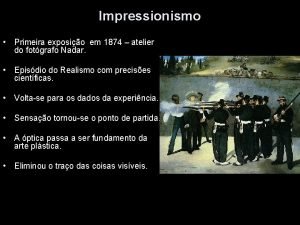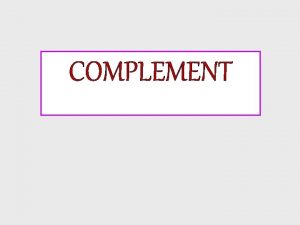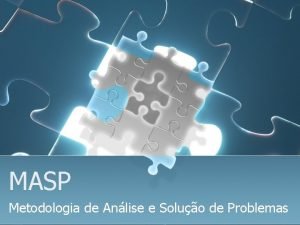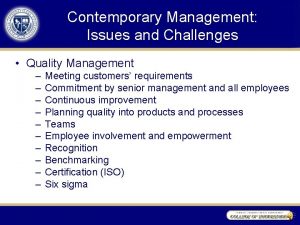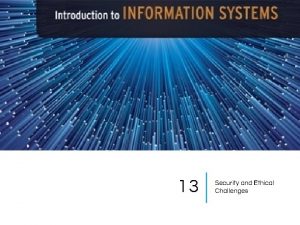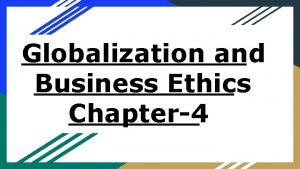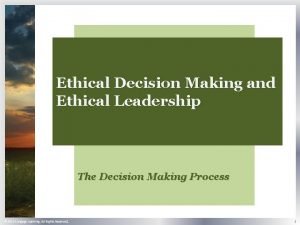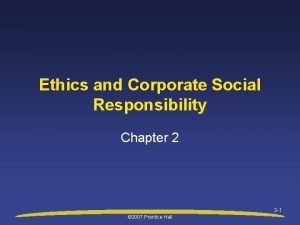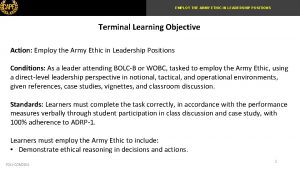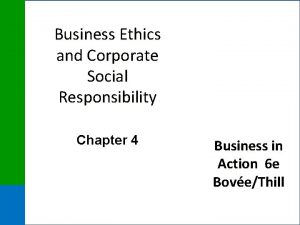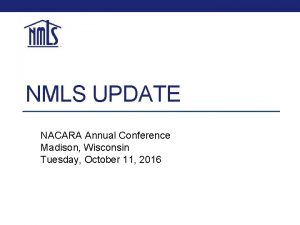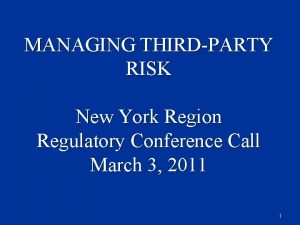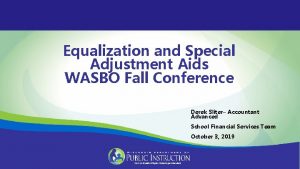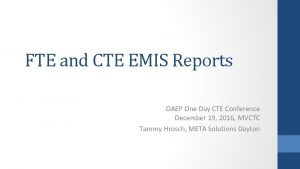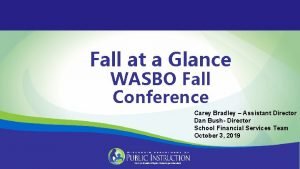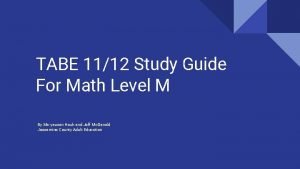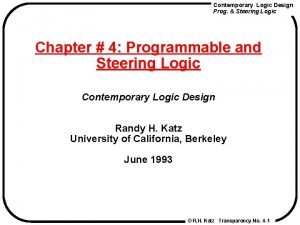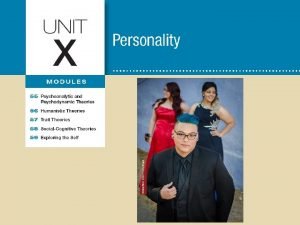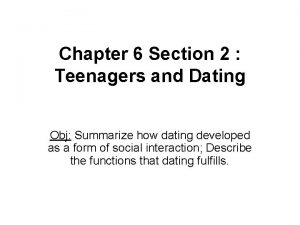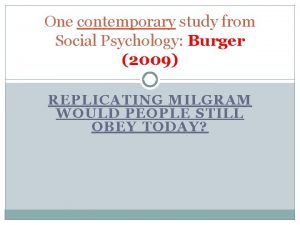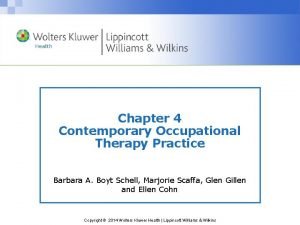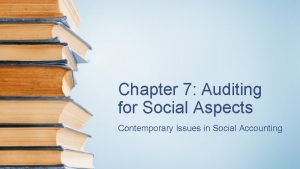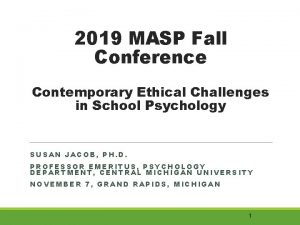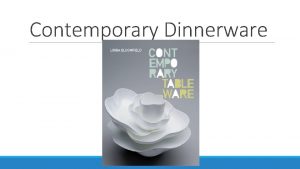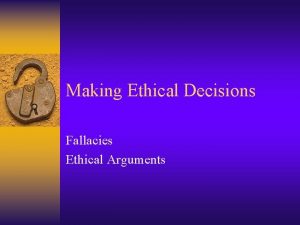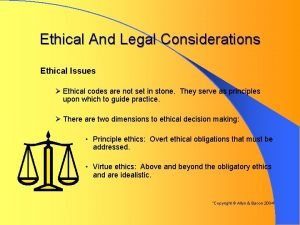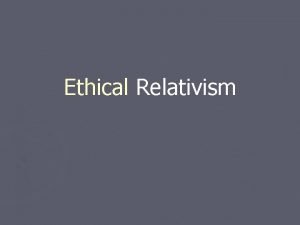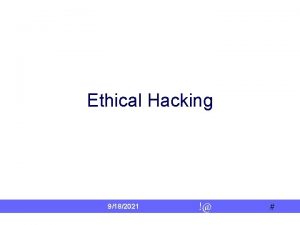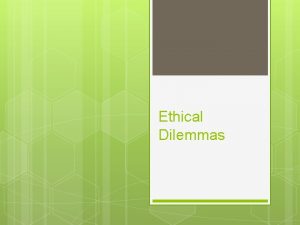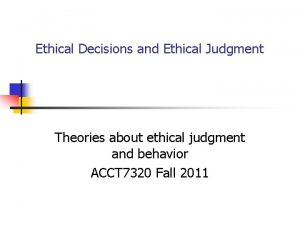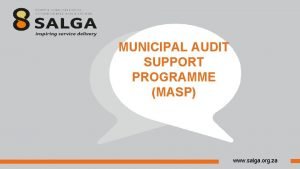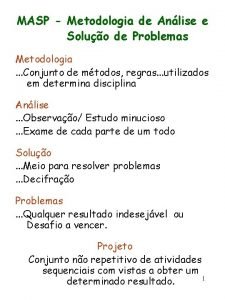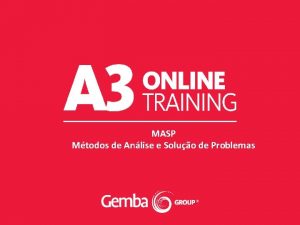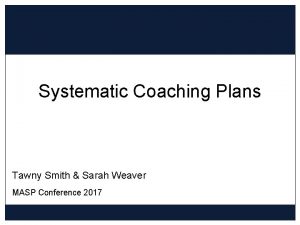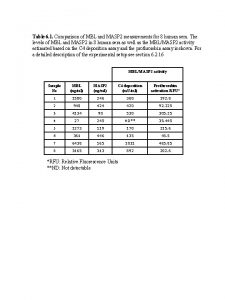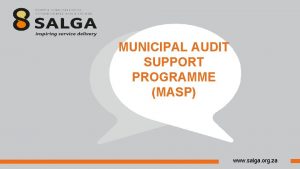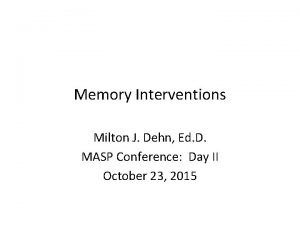2019 MASP Fall Conference Contemporary Ethical Challenges in



















































- Slides: 51

2019 MASP Fall Conference Contemporary Ethical Challenges in School Psychology SUSAN JACOB, PH. D. PROFESSOR EMERITUS, PSYCHOLOGY DEPARTMENT, CENTRAL MICHIGAN UNIVERSITY NOVEMBER 7, GRAND RAPIDS, MICHIGAN 1

Learning objectives Enhanced awareness of the types of ethical issues raised in inquiries to NASP’s Ethics and Professional Practices Board; Practice and improved skill in applying accepted and evolving standards and principles to these issues; Practice and improved skill in applying an ethical-legal problem-solving model.

Please note I am a member of the NASP Ethical and Professional Practices Board (EPPB). However, the views I express today should not be viewed as reflecting the official opinion of the EPPB or NASP. The presenter writes and publishes about ethical and professional practices but I am not here to promote my work today. I am NOT an attorney; my opinions should not be regarded as legal advice.

The Board’s role The NASP Ethical and Professional Practices Board (EPPB) is responsible for interpreting and applying standards for the professional conduct of NASP members and school psychologists who are credentialed by the National School Psychology Certification System. The Board’s objectives are: ◦ To promote and maintain ethical conduct by school psychologists. ◦ To educate school psychologists regarding NASP ethical standards. ◦ To protect the well being of school psychologists' clients.

EPPB Problem Solving Is this a complaint (formal or informal) about a NASP member or NCSP? ◦ If not about a member or NCSP, to whom could we direct the complainant? Consider alternative actions: ◦ Is EPPB the best venue for problem resolution? ◦ Could matter be resolved informally or is a formal complaint more appropriate? If the allegation were true, would it constitute a violation of NASP ethical standards?

If the EPPB accepts a complaint… Summarize the situation based on information provided by the complainant. Define potential ethical (and legal) issues. Provide the respondent the opportunity to present “his or her side of the story. ” Seek clarification from one or both parties if necessary. Evaluate rights, responsibilities and welfare of all affected parties based on available information. Decide on a course of action (ethics violation occurred, no violation).

Complaint resolution If, after investigation, the Board determines that a violation of the NASP’s “Principles for Professional Ethics” has occurred, the Board may require the respondent to engage in remedial activities, such as education or training, and to provide restitution or apology. The EPPB may recommend probation, suspension, or termination of NASP membership and/or revocation of the NCSP.

Informal Inquiries EPPB members also respond to questions from school psychology practitioners who have encountered an ethically challenging situation. Situations are discussed without disclosing the identities of the parents, children, teachers, or others. EPPB members may respond to these queries on the phone or by email; independently or after consulting with other EPPB members. A response to a query often involves assisting the practitioner to identify relevant ethical (and sometimes legal) issues. Practitioners are encouraged to use a problemsolving model to decide on the best course of action. The practitioner, not the EPPB member, assumes responsibility for his decisions.

Eight-Step Problem. Solving Model 1. Describe the parameters of the situation. 2. Define the potential ethical-legal issues involved. 3. Consult ethical-legal guidelines, if any, already available that might apply to the resolution of each issue. Consider the broad ethical principles as well as specific mandates involved. Consider cultural characteristics salient to decision. 4. Evaluate the rights, responsibilities, and welfare of all affected parties. 9

Eight-Step Problem. Solving Model 5. Generate a list of alternative decisions possible for each issue. 6. Enumerate the consequences of making each decision. Consultation with colleagues may be helpful. 7. Present any evidence that the various consequences or benefits resulting from each decision will actually occur (i. e. , a risk-benefit analysis). 8. Make the decision. Consistent with ethical codes, school psychologists accept responsibility for the decision made and monitor the consequences of the course of action chosen. (Adapted from Koocher & Keith-Spiegel, 2016). 10

The IEP and the School Psychologist

Mr. Rossi, father of an 8 -year-old boy, contacted the Ethics Board to ask about possibly filing an ethics complaint against a school psychologist, Mrs. Moss, who was assigned to work with his son. He described his son, Ben, as having a psychiatric diagnosis of Asperger’s syndrome. Although doing well academically, his son has daily melt-downs in class with episodes of crying and “wailing, ” difficulty interacting with peers, and no friends. Ben is highly anxious and prone to stomach upsets and he avoids eye contact with others. The school qualified Ben for special education services under the classification of emotional disability rather than autism because of Ben’s borderline scores on an autism scale. His IEP provides sessions with the school counselor to address his anxiety, and an “open pass” to the counselor’s, nurse’s, or principal’s office any time he needs a safe place to calm down. The effectiveness of the school’s IEP is monitored by periodic informal reports from the school counselor.

Mr. Rossi is concerned because his son is spending increasing amounts of time in his “safe places” and is missing a significant amount of instructional time. When Mr. Rossi asked Mrs. Moss to consider revising the IEP to include cognitive-behavioral services, she responded that the current IEP was working “just fine” because Ben had learned to use his safe places when anxious and the school counselor perceives that he was “doing better. ” Mr. Rossi wondered whether Mrs. Moss was fulfilling her ethical obligations to his son Ben.

Welcome to the EPPB! In a group or with a colleague sitting near you, describe the problem situation(s). Identify any ethical (and legal) issues and principles involved. Evaluate the rights, responsibilities, and welfare of all affected parties. What, if any, action should be taken and by whom?

Describe the parameters of the situation

Define the potential ethical-legal issues involved. Consult ethical-legal guidelines.

Identify the ethical-legal issues involved. Consult ethical-legal guidelines.

Evaluate the rights, responsibilities of all affected parties.

What, if any, action should be taken and by whom?

The IEE and Two School Psychologists

Mr. and Mrs. Whitney’s son, Carl, is an 8 th grade boy who often refuses to go to school. The school psychologist at Applefield Middle School, Mrs. Newman, evaluated Carl for special education eligibility under IDEIA and he was found not eligible because Carl “gets good grades and can do the work. ” After due process proceedings during which Mr. and Mrs. Whitney challenged this eligibility determination, the school district agreed to pay for an independent education evaluation (IEE) of Carl.

The psychologist who completed the IEE of Carl, Dr. Gale, Ph. D. , NCSP, provided information important to determining Carl’s possible eligibility under IDEIA as a child with an emotional disability (ED). He diagnosed Carl with a DSM anxiety disorder and recommended Carl by seen by a psychiatrist for possible medical treatment. He noted that children with ED may perform well academically but need special education and related services to support their achievement and that, in fact, Carl’s satisfactory academic progress was probably due in part to extensive home tutoring the parents provided.

Finally, Dr. Gale wrote the following in his report to the school: “Interactions in this family are characterized by tension, overreactions, and problematic role definitions. Mr. Whitney is rigid and unable to adapt to Carl entering adolescence. As a result, he withdraws from the parenting role. Mrs. Whitney has a history of anxiety and panic disorder and appears to be emotionally enmeshed with her son. It is important for these parents to receive mental health counseling so that they can better manage Carl’s school refusal. ” (description from research of G. A. . Bernstein and B. D. Garfinkel)

Dr. Gale believes that it is important to understand Carl in the context of his family as a system. Furthermore, his contract with Applefield Middle School required him to provide all results to the school. Consequently, Dr. Gale sent his entire psychological report, including the above paragraph, to Applefield Middle School. Mrs. Newman received the report and distributed the entire report to all members of Carl’s special education eligibility determination team.

After receipt of the report. Mr. and Mrs. Whitney filed ethics violation complaints against Dr. Gale and Mrs. Newman. Their complaint alleged that Dr. Gale violated NASP’s code of ethics by seeking and releasing private confidential information about them that was not needed in the IEE. They alleged that Mrs. Newman also violated NASP’s ethics code by storing and releasing the private confidential information about the parents to school staff who had no need to know.

Welcome to the EPPB! In a group or with a colleague sitting near you, describe the problem situation(s). Identify any ethical (and legal) issues and principles involved. Evaluate the rights, responsibilities, and welfare of all affected parties. What, if any, action should be taken and by whom?

Identify the ethical-legal issues involved. Consult ethical-legal guidelines.

Identify the ethical-legal issues involved. Consult ethical-legal guidelines.

Evaluate the rights, responsibilities, and welfare of all affected parties.

Evaluate the rights, responsibilities, and welfare of all affected parties. Do you believe that Mrs. Newman engaged in unethical conduct?

What EPPB education/disciplinary action is appropriate?

A Query About Mental Health Screening and Consent

Query to the Ethics Board Dear Ethics Board members, I am a school psychologist in…. Many districts give a socio-emotional screener to screen for student mental health needs. My prior district did this at the elementary level. A district cannot get active consent for all students. It's not feasible and most districts get passive consent due to these logistical concerns. Does this practice violate our ethics code? (Based on post to NASP Member Exchange).

As an EPPB member, please respond to this query: This is a simple question that requires a nuanced and complex response.

Two Different Types of Screeners

Two Different Types of Screeners

Informed Consent, Passive Consent, and Notice and Opt-Out

Ethics Code

Note about EPPB Procedures… Promotion of Ethical and Professional Practices ◦ When consulting regarding ethical dilemmas, the EPPB promotes an ethical and professional problem-solving model and does not prescribe conduct or provide situational advice. EPPB members may provide support in identifying relevant Standards and implementing a problem-solving method. The individual seeking support maintains full responsibility for all actions and decisions.

District Policies and the School Psychologist

Mrs. Nguyen was concerned because her daughter, Qui, had struggled academically in first and second grade. As of December of her third-grade year, Qui was falling even further behind her classmates, especially in reading. At the suggestion of a member of her church, Mrs. Nguyen sent an email to the school psychologist, Mr. Miller, at the K-4 school her daughter attended. In the email, she wrote: “I would like to have my daughter, Qui, evaluated to determine whether she qualifies for special education services” and she provided her phone number and other contact information. Mr. Miller responded via an email that said: “Attached is our District’s handbook on special education policies and procedures. ” Because she did not hear back from Mr. Miller, Mrs. Nguyen left two voice mail messages for him in January and sent another email at the end of February.

At the end of February, Mr. Miller responded via email: “In the Handbook I sent you, it says on page 23 that requests for special education evaluation must be made to the District’s special education director, not a teacher or the building-level school psychologist. ” Mrs. Nguyen then forwarded her original December email that requested an evaluation of her daughter to the District’s special education director, with an additional note stating that she felt the evaluation (and possibly individualized educational support) had been inappropriately delayed by Mr. Miller’s failure to forward her original request. She subsequently received a letter from the District’s attorney, informing her that the District had met its legal requirements by providing her with a copy of their special education handbook, and that no one in the District could be held responsible for the delay in having her daughter evaluated because she failed to read the Handbook and follow its procedures.

Mrs. Nguyen subsequently contacted NASP’s Ethics Board with a query regarding whether Mr. Miller had met his ethical responsibilities to her and her daughter. The Ethics Board decided to accept and investigate the complaint. Mr. Miller was contacted by mail and asked to explain “his side of the story. ” In response, the Ethics Board received a letter from the school district’s attorney stating that Mr. Miller had complied with district policy and special education law and that Mr. Miller had never engaged in any unethical conduct in his many years with the district. The letter went on to describe Mrs. Nguyen as a hostile parent who repeatedly made unreasonable demands of the school district.

In a group or with a colleague sitting near you, describe the problem situation(s). Identify any ethical (and legal) issues and principles involved. Evaluate the rights, responsibilities, and welfare of all affected parties. Do you believe that Mr. Miller engaged in unethical conduct? What, if any, action should be taken by the Ethics Board?

Ethical Issues

Legal issues

Evaluate the rights, responsibilities, and welfare of all affected parties.

What EPPB educative/disciplinary action, if any, is appropriate?

EPPB Recent trends. . Response to EPPB notice of ethics complaint comes from the school district’s attorney, not the school psychologist. Response to complaint focuses on disparaging the complainant. Failure to differentiate between legal standards and ethical standards. No recognition that unethical conduct includes omissions (failure to act when there was an ethical duty to do so). Failure to accept that NASP’s ethics code applies regardless of job role or setting (e. g. , special education director, director of psychological services).

Your questions/issues

Inquiries/Complaints Ethics complaint form and procedures are posted at http: //www. nasponline. org. Queries and complaints will be channeled through NASP’s EPPB Staff Liaison.
 Degas masp
Degas masp Masp-2
Masp-2 Masp
Masp Economic challenges facing contemporary business
Economic challenges facing contemporary business Contemporary management issues
Contemporary management issues Security and ethical challenges
Security and ethical challenges Business ethics globalization
Business ethics globalization Security and ethical challenges
Security and ethical challenges Ethical habits
Ethical habits Perbedaan ethical dilemma dan ethical lapse
Perbedaan ethical dilemma dan ethical lapse Army ethical lenses
Army ethical lenses Chapter 4 business ethics and social responsibility
Chapter 4 business ethics and social responsibility Wind energy science conference
Wind energy science conference Nmls resource center
Nmls resource center The microcap conference 2019
The microcap conference 2019 Fsna conference 2019
Fsna conference 2019 Ba conference 2019
Ba conference 2019 Cdha perks
Cdha perks Third party risk management conference 2019 new york
Third party risk management conference 2019 new york Wasfaa conference 2019
Wasfaa conference 2019 Mil-std-7179
Mil-std-7179 Nordic navigation
Nordic navigation Appa eo conference 2019
Appa eo conference 2019 Executive assistant conference 2019
Executive assistant conference 2019 Vasfaa conference 2019
Vasfaa conference 2019 Png investment conference 2019
Png investment conference 2019 Esop conference 2019 las vegas
Esop conference 2019 las vegas Fasfaa conference
Fasfaa conference Deutsche bank high yield conference 2019
Deutsche bank high yield conference 2019 2019 dod allied nations technical corrosion conference
2019 dod allied nations technical corrosion conference Wasbo fall conference
Wasbo fall conference Oaep fall conference
Oaep fall conference 2017 dvhimss annual fall conference
2017 dvhimss annual fall conference Tgfoa
Tgfoa Wasbo fall conference
Wasbo fall conference Contemporary tabe skill workbooks level m download
Contemporary tabe skill workbooks level m download Martha graham technique spiral
Martha graham technique spiral Contemporary issues in planning
Contemporary issues in planning Positional/definitional boundary disputes
Positional/definitional boundary disputes Contemporary logic design
Contemporary logic design Contemporary french composers
Contemporary french composers Contemporary conflict theorists
Contemporary conflict theorists Freud's theories
Freud's theories Contemporary methods for determining system requirements
Contemporary methods for determining system requirements Dating serves several important functions that include
Dating serves several important functions that include Pendekatan kontemporer adalah
Pendekatan kontemporer adalah Burger 2009 study
Burger 2009 study The lords prayer in aramaic
The lords prayer in aramaic Global marketing contemporary theory practice and cases
Global marketing contemporary theory practice and cases Contemporary occupational therapy practice
Contemporary occupational therapy practice Contemporary issues in auditing
Contemporary issues in auditing Contemporary psychology definition
Contemporary psychology definition
